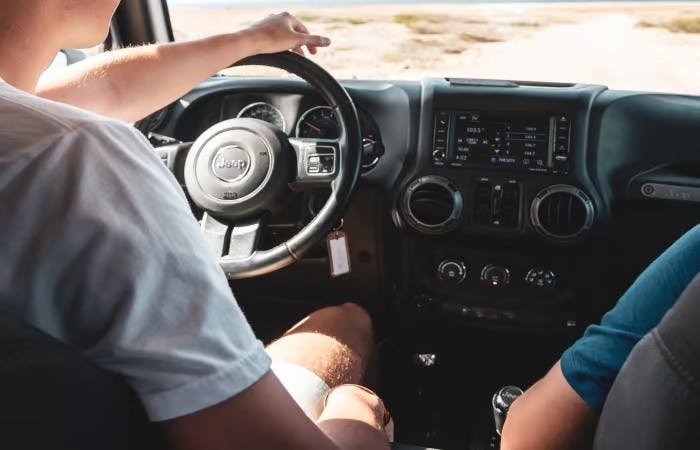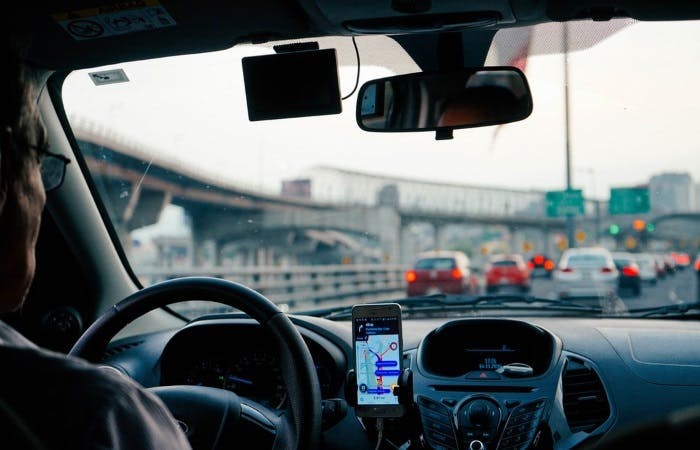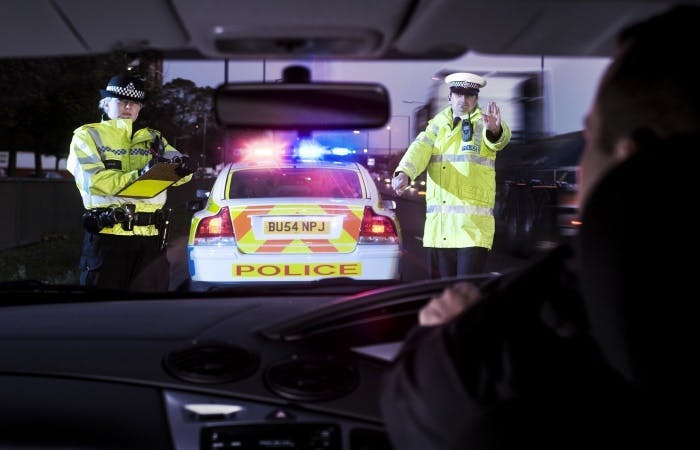Being one of the first in your friendship group to pass the driving test is a pretty great feeling. You get to show off your new wheels to your jealous mates and the bragging rights pretty much never expire. The thing is, though, you also get lumped with a certain amount of responsibility. The people you're gloating at are also the same people who will no doubt be asking for lifts here, there and everywhere.
Now, cruising around with your mates is fun and all, but you need to take some precautions. Driving with a bunch of passengers is very different to driving alone, especially for newly-qualified licence holders with limited experience. It alters how a car feels to drive and may actually compromise your safety. In fact, research has shown that young drivers travelling with peer passengers are four times more likely to be involved in a fatal crash than those driving alone. That's quite an alarming statistic!
To help you reduce the risks involved in driving with passengers, we've highlighted 5 key things that all newly-qualified drivers should consider before letting others pile into their car. Let's get stuck in!
1. You will notice a difference

Aside from the obvious fact that you'll be able to see the extra people in your car, either next to you or via the rearview mirror, you'll also be able to feel their impact on the car. This can be quite strange at first! Cars may be large and sturdy, but adding extra loads (AKA your friends) alters the weight distribution and increases the amount of friction between the wheels and the road. As a result, you may find that driving with passengers requires you to accelerate and brake with more care than usual.
Don't worry, though: it's a sensation that most capable drivers get used to very quickly. To stay on the safe side, avoid treating your vehicle like a clown car the first day you get your licence. Build up to having a full car by allowing just one or two people to come along for the ride on your first few journeys. It goes without saying (yet here we are!) that you should never exceed the maximum number of people that you car can legally hold.
2. You're the boss!

Remember when we said it was fun to drive around with your mates? Well, the thing about that is, some people get a bit giddy with the power of being out on the road without any authority figures. We're not saying that you have to rule the inside of your car with an iron fist, but you do need to take charge of everyone's safety. That means requiring that all passengers wear a seatbelt and behave in a vaguely acceptable manner. Sorry to be a party pooper, but teenagers sticking their heads out of the sunroof and clambering about in the boot is not what the DVSA had in mind when they granted you that licence.
Aside from being annoying and childish, rowdy passengers can also be incredibly distracting. It's hard to focus on the road when your mate Dan is swearing at fellow road users and poking his backside out of the window. This doesn't reflect well on anyone in that vehicle. You control the car, so you should control how the people in it behave. If anyone complains about your rules, you can direct them to the nearest bus stop. Problem solved!
3. Beware the backseat driver

The only thing worse than Dan and his shenanigans? Your other friend dishing out pointers on how you could have taken that turn better and why your clutch control needs work. Yes, we're talking about the dreaded backseat driver. As soon as there's a lull in conversation, certain people will take the opportunity to dish out unsolicited driving advice. The most infuriating of this group are the ones who haven't even passed their driving test yet!
This is the type of behaviour you want to nip in the bud early on if you want to enjoy a stress-free ride. As long as your DVSA-approved driving instructor would be happy with how you're controlling the car, it doesn't matter what Mr Know-it-all thinks. Tell them to pipe down and try not to let their words get to you.
4. You're more of a target

A bunch of young people packed into a car sticks out like a sore thumb, especially to the police. This kind of thing sets off warning bells for them. You may therefore find that when your car is loaded with passengers of a similar young age, you are more likely to be noticed by the authorities. This is why it's extra important that everyone is on their best (OK, perhaps slightly optimistic) behaviour.
Given the disproportionate number of young drivers involved in car accidents, police bias toward these scenarios isn't completely unfounded. So, if you're intent on keeping that new licence secure and points-free, you might want to think twice about who you offer a lift to. The driver of the car has more to lose than anyone else!
5. You could be breaking the law

It may surprise you to learn that driving with passengers could soon get newly-qualified drivers into trouble with the law. Heard of graduated licence schemes? These involve restrictions on drivers in the first year or two of a licence being granted. In Northern Ireland, for example, drivers are required to display R (for restriction) plates on their car during the first year of qualification. As you would expect, this carries with it certain restrictions. For example, drivers with an r-plate displayed are not allowed to drive at a speed of over 45 miles per hour. You also see a similar graduated approach in the UK, where newly-qualified drivers only need to rack up 6 points on their licence to have it revoked.
A number of driving safety organisations are now pushing for limits to be applied to the number of peer passengers new drivers can have in their car. Northern Ireland plans to introduce a law in 2020 whereby drivers under the age of 24 will not be allowed to drive with more than one passenger aged between 14 and 20 during the hours of 11pm to 6am. Similar restrictions are being considered by the Department for Transport.
Driving with passengers
We hope this has given you some food for thought when it comes to offering lifts to all of your friends. Sometimes driving with passengers can be a lot more hassle than it's worth! We're not saying you shouldn't do it at all, but it does require some forward thinking. Make sure you're prepared for the potential outcomes, and take the necessary precautions.
For more advice on driving with passengers (this time of a slightly different variety) check out our article on driving with pets!
Subscribe for driving advice, offers & more
We'd love to let you know about our courses, news and offers via email. You may unsubscribe at any time.
Star Genie Limited trading as PassMeFast. Company number 10093359
Copyright © 2024 owned by Star Genie Limited
PassMeFast, Blue Tower, MediaCityUK, Salford, M50 2ST
